Yes, Valentine’s Day is just around the corner, but there is still time to treat your Love to one or more of these luscious love poem books.
And as any good lover knows, true love is made in more than a day, so these suggestions are nuanced enough to help you build your love all year long—or get ready to find (and woo) a love in the future.
1. If Not, Winter: Fragments of Sappho, translated by Anne Carson
If you think there’s enigma attached to Emily Dickinson, with her pauses and starts, her silences marked by those many dashes which have been disputed, lengthened or shortened, turned into commas and back again, then you’ve barely begun to taste mystery in poetry. Wait until you encounter Sappho.
Thanks to mystery, Sappho could be the ultimate love play, if you are the patient type, the visual type, and the type who can live with what is—because of what’s literally lost to us due to the ravages of time and in some cases willful neglect—still left unsaid (and undone). Despite the many unknowns due to the fragmentary nature of the remaining papyri on which her work comes to us, we absolutely know when in the presence of Sappho: words have weight, and when we hand them to one another, we can imprint the heart. Sappho’s words imprint with fragrance and a forthrightness that is both startling and settling. Take these, the first an excerpt from fragment 1, the second a full reading of fragment 25:
1
Come to me now: loose me from hard
care and all my heart longs
to accomplish, accomplish. You
be my ally.
25
]
]quit
]
]luxurious woman
]
]
]
2. Love, Etc.: Poems of Love, Laughter, Longing & Loss, by L.L. Barkat
Perhaps Sappho, by virtue of history’s vagaries, was the first minimalist. The wide spaces and what is left unsaid invite entry and exploration. Though, as it goes, this was not necessarily what Sappho intended. Whatever spaces she originally included were probably more of the sort we’ve come to expect in poetry: the spaces created for intellect, desire, questioning, and longing, when an image draws you in just so far but then depends on you to go all the way through an exercise of the imagination and the heart. To read Love, Etc., is to get that chance to fill in such (albeit, more purposeful) gaps—playfully or passionately, thoughtfully or inquisitively. Enter these, for instance, and see what comes:
Meet Me in a Minimalist Poem Where We Can Wear
( )
Come,
dip your little finger in
Spanish Recipe
1
Let’s make
Neruda soup together.
You bring the poems,
I’ll bring the red poppies
and the black seeds.
2
Let’s eat
the soup together.
You bring an open mouth,
I’ll bring a full spoon
3. The Essential Neruda: Selected Poems, Edited by Mark Eisner
The red poppies spoken of in “Spanish Recipe” (above) are not a simple image of love, though they certainly can be read as such for the needs of a lover on any given day—including Valentine’s Day. Neruda’s red poppies show up, for instance, in a poem to his dying daughter:
Only with kisses and red poppies can I love you,
with rain-soaked wreaths,
—excerpt from “Ode with a Lament”
His lilies show up in what feels like a poem of full-blown midlife crisis complete with ashes, wailing, trembling, and terror:
Comes a time I’m tired of my feet and my fingernails
and my hair and my shadow.
Comes a time I’m tired of being a man.
Yet how delicious it would be
to shock a notary with a cut lily
—excerpt from “Walking Around”
His roses appear in what could be understood as a journey towards death as much as a cry of love in life:
Smooth substance, oh drywinged rose,
in my sinking I climb your petals…
come to me, to my measureless dream,
fall into my room where night falls
and incessantly falls like broken water,
and clasp me to your life, to your death…
—excerpt from “Entrance Into Wood”
4. O: Love Poems from the Ozarks, by Dave Malone
In a recent conversation with my daughter, who claims that the reason she can write wonderful love poems is because the best love poems are about more than love (if they weren’t, she’d not be able to write them, she explained), I was reminded of the new collection by Dave Malone: O.
Malone’s poems tilt your understanding of what makes a good love poem, for this very reason: they are about love, yes, but they are also about more. Rooted in his Ozarks’ geography, the poetry is attached to place, terrain, climate, and culture as much as it is attached to the heart it both emanates from and hopes to woo.
Thunderboomer
April wind batters Ozark afternoon.
Redbuds bleed purple on the lawn.
Gray gnaws all the way down
to toe-stumbling roots.
Lightning forces squirrels into flight.
The house cries dark with hope
as you rise from the breakfast wasteland
we savored like hipbones.
I follow you into the bedroom
where you curl against me,
the gale smacking then cupping
the front door into giving up.
You are melty as butter.
Clouds blacken outside
like toast.
Civil War
From the grass green comforter
and disheveled white sheets,
you and I hold sentinel for weeks.
The battle of our loving is a landscape
of canon and chipped maps and civil war,
a river of blood and backups—
in the booming release
as gunpowder flames again.
5. Love Songs, by Sara Teasdale
If you are the determined and ticklishly surprising sort, you might reach back through time and locate a 1917 edition of this volume for your lover (alternately, you can find it in a modern Kindle format, which feels less tantalizing beneath the hands but sounds the same to the ear—unless perhaps the printed page really does alter the way we read).
And, to the point made when discussing geography in Dave Malone’s O, you’ll see that Teasdale does not go untouched in this regard either. These poems reveal a Northeastern U.S. slant towards the river, the rail, the sea, and the swallow…
Summer Night, Riverside
In the wild, soft summer darkness
How many and many a night we two together
Sat in the park and watched the Hudson
Wearing her lights like golden spangles
Glinting on black satin.
The rail along the curving pathway
Was low in a happy place to let us cross,
And down the hill a tree that dripped with bloom
Sheltered us,
While your kisses and the flowers,
Falling, falling,
Tangled my hair. . . .
The frail white stars moved slowly over the sky.
And now, far off
In the fragrant darkness
The tree is tremulous again with bloom,
For June comes back.
To-night what girl
Dreamily before her mirror shakes from her hair
This year’s blossoms, clinging in its coils?
The Flight
Look back with longing eyes and know that I will follow,
Lift me up in your love as a light wind lifts a swallow,
Let our flight be far in sun or blowing rain—
But what if I heard my first love calling me again?
Hold me on your heart as the brave sea holds the foam,
Take me far away to the hills that hide your home;
Peace shall thatch the roof and love shall latch the door—
But what if I heard my first love calling me once more?
6. Love Poems, an Everyman Anthology, compiled by Peter Washington
Partly because this is an anthology, no definite experience of love emerges. It is not tied to a sense of place or to the heart of a particular poet. Rather, this volume offers a tour of love through its themes such as Definitions and Persuasions, Love and Poetry, Pleasures and Pains, Love Lost, and so on. The quality of the poems (many of them classics) is dependable, even if they don’t contain the force and allure that comes from spending time with a voice you begin to anticipate, interpret, argue with, or find yourself hopelessly intrigued by. Note, for instance, the excellence of both of these poems, but how they move in different directions not just because they address different aspects of love but also because they are by poets of a different culture, geography, and time period…
I will leave your white house and tranquil garden.
Let life be empty and bright.
You, and only you, I shall glorify in my poems,
As a woman has never been able to do.
And you remember the beloved
For whose eyes you created this paradise,
But I deal in rare commodities—
I sell your love and tenderness.
—Anna Akhmatova, translated by Judith Hemschemeyer
Loving in Truth
Loving in truth, and fain in my verse my love to show,
That she, dear she, might take some pleasure of my pain:
Pleasure might cause her read, reading might make her know,
Knowledge might pity win, and pity grace obtain,
I sought fit words to paint the blackest face of woe,
Studying inventions fine, her wits to entertain:
Oft turning others’ leaves to see if thence would flow
Some fresh and fruitful showers upon my sun-burn’d brain.
But words came halting forth, wanting Invention’s stay,
Invention, Nature’s child, fled step-dame Study’s blows,
And others’ fee still seem’d but strangers in my way.
Thus great with child to speak, and helpless in my throes,
Biting my trewand pen, beating myself for spite,
Fool, said my Muse to me, look in thy heart and write.
—Sir Philip Sidney
7. The Captain’s Verses: Love Poems, Pablo Neruda translated by Donald D. Walsh
If Dave Malone’s O doesn’t shy from the hard sides of love (and it doesn’t), let it be said that this volume of Neruda love poems goes even further and, at times, avidly pursues the harsh nature of passion to a point that can be distressing. Happily, however, the dominant tenor of this volume is earthy and image-rich in a way that makes you feel you might want to eat the poems from a smooth wooden bowl.
The Slip
If your foot slips again,
it will be cut off.
If your hand leads you
to another road
it will rot away.
If you take your life from me
you will die
even though you live.
You will go on dead or shade,
walking without me on the earth.
The Potter
Your whole body has
a fullness or a gentleness destined for me.
When I move my hand up
I find in each place a dove
that was seeking me, as
if they had, love, made you of clay
for my own potter’s hands.
Your knees, your breasts,
your waist
are missing parts of me like the hollow
of a thirsty earth
from which they broke off
a form,
and together
we are complete like a single river,
like a single grain of sand.
8. The Subject Tonight is Love: 60 Wild and Sweet Poems of Hafiz, translated by Daniel Ladinsky
A mix of the abstract (forgiveness, wisdom, truth, divinity) and the jewel-like image, these poems can be read as both spiritual poems and poems of human love. As is the tradition of other Eastern poetry like the ghazal, this verse occasionally includes references to the poet himself, which is often used in multi-layered ways: as a kind of embedded signature, an opportunity for self-reflection, a chance to philosophize, or a way to take an unexpected turn towards humor.
Why All This Talk?
Why all this talk of the Beloved,
Music and dancing.
And
Liquid ruby-light we can lift in a cup?
Because it is low tide,
A very low tide in this age
And around most hearts.
We are exquisite coral reefs,
Dying when exposed to strange
Elements.
God is the wine-ocean we crave—
We miss
Flowing in and out of our
Pores.
Old Sweet Beggar
This
Path to God
Made me such an old sweet beggar.
I was starving until one night
my love tricked God Himself
To fall into my bowl.
Now Hafiz is infinitely rich,
But all I ever want to do
Is keep emptying out
My emerald-filled
Pockets
Upon
This tear-stained
World.
9. The Tale of Genji, Abridged, Murasaki Shikibu, edited and translated by Royall Tyler
Don’t be socially inept about poetry, or it could ruin your love life. At least it could in early Japan, where an exchange of poems was a courting requirement. This volume, actually a mix of prose and poetry, is a commentary on love, an expression of poetic prowess, and an argument for the value of story in a culture that saw poetry as the noblest of arts. The poems may be short, but they invite you (as they invited scores of lovers over the ages) to linger long and read between the lines…
Ever since these ears listened to that single cry from the little crane,
I have despaired that my boat should be caught among the reeds.
*
Whenever you come, I shall cut for your fine steed a feast of fresh grass,
be it only lower leaves, now the best season is past.
10. The Ink Dark Moon: Love Poems by Ono No Komachi and Izumi Shikibu, Women of the Ancient Court of Japan, translated by Jane Hirshfield and Mariko Aratani
Short poems for the lover in a hurry? Don’t let length deceive. As can be the case with haiku, these brief tanka poems on longed-for love or love lost invite surprising contemplation. Though not required, it helps to understand the function of traditional Japanese images that can appear to be simply about “nature” but in fact are symbols of passion or longing. Not a bad idea to give this volume at the same time as The Tale of Genji (above), to create a more informed backdrop for understanding. That said, some things need no additional explanation for those acquainted with love:
Undisturbed,
my garden fills
with summer growth—
how I wish for one
who would push the deep grass aside.
—Izumi Shikibu
When my desire
grows too fierce
I wear my bed clothes
inside out,
dark as the night’s rough husk.
—Ono No Komachi
Photo by Nana B Agyei, Creative Commons, via Flickr. Post by L.L. Barkat.
- Poetry Prompt: In the Wild Secret Place - January 6, 2025
- Journeys: What We Hold in Common - November 4, 2024
- Poetry Prompt: My Poem is an Oasis - August 26, 2024
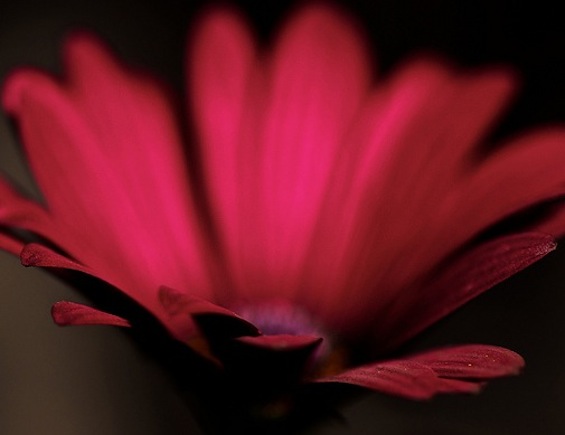
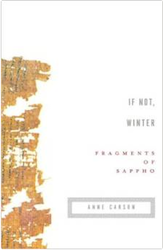
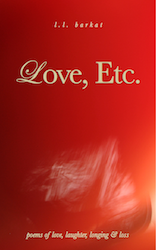
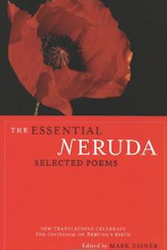
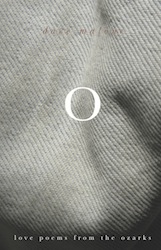
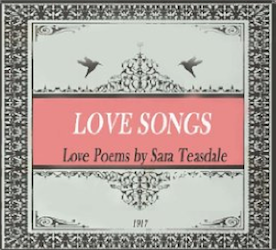
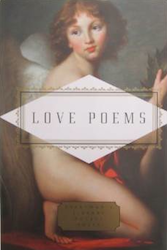
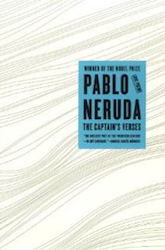
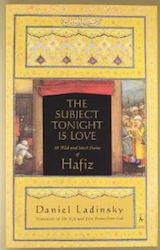
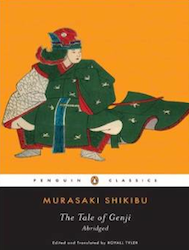
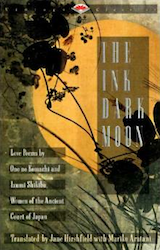
single person longing says
Hmm. If only I had someone to read love poems to …
L. L. Barkat says
A good love poem can definitely be enjoyed in any case. Ah, but the universal desire is probably to share 🙂
Sandra Wirfel says
I agree “the universal desire is to share” that is why even though I do not like mechanics, I always help him change the oil in his tractor and switch out the plow with the mower deck each season, because it’s about the sharing, and even though he “doesn’t get it” it is always about the sharing, togetherness isn’t about liking the same things, it’s about being able to share what you like with your significant other.
I once gave him a copy of “How Do I Love Thee?” by Elizabeth Barrett Browning… and the last line is “I shall love but thee better after death.” and with his humor he said “Oh are you going to kill me?”
He makes me laugh.
Sandra Wirfel says
My husband of 24 years “doesn’t understand poetry” He is type A personality and a Logistics Planner for his job, so everything is analyzed. He spends a very long time trying to pick a birthday card. I still continue to share my poetry with him, although he will often respond “I don’t get it.” But everytime I tell him I have written another poem or series of poems, he will say “Oh, was it about me, and how much you love me.”” It always makes me laugh, maybe if I tried one of these time tested love poem books, he would get it.
L. L. Barkat says
Tell us if you try it out, Sandra? Poetry isn’t always for “getting.” He could go in for the sounds of the words and the rhythms, as with music (does he appreciate music?)
Sandra Wirfel says
He loves music. There is always music playing in our house. When our 21 year old daughter did her senior project on “poetry is alive and well,” my husband was so proud of her becuase she spent alot of time having him listen to the lyrics of songs, and then when she said “Dad, music is poetry put to instruments,” he was “No music is music, the words make sense.”
I usually share what I write wether poetry, or children’s story.
L. L. Brown says
I’m not sure this belongs here, but it was knocking around in my head today. Circa 1983. The apple was real.
Bite Me
A half-eaten apple
withers on a windowsill
once honey gold
now lacking appeal.
Consume fruits in ripeness—
acid hesitation
sours sweet
satisfaction.
EMILY says
This is a great collection and I will buying a few new love poetry books this year. My husband purchased – Love Poems From The Universe – early this year for me. A great book, I must say. What do you think to modern poets like: Atticus?